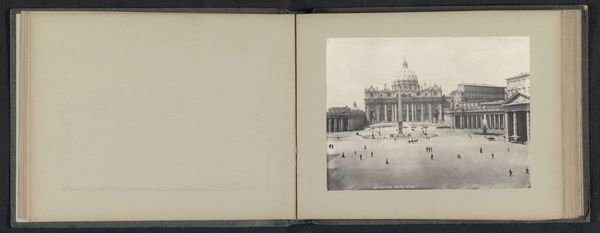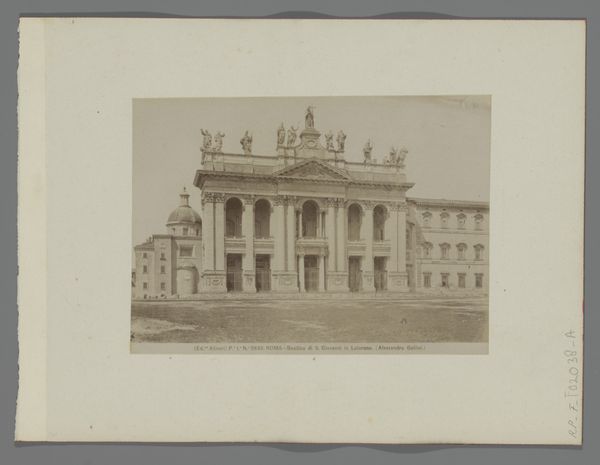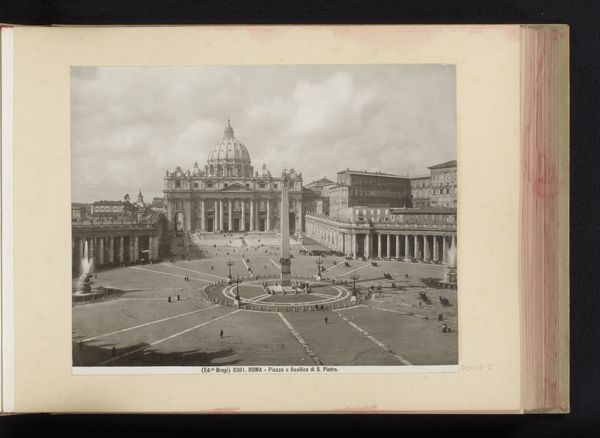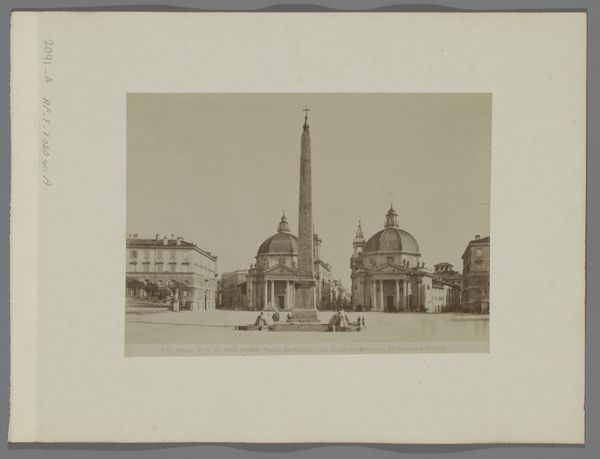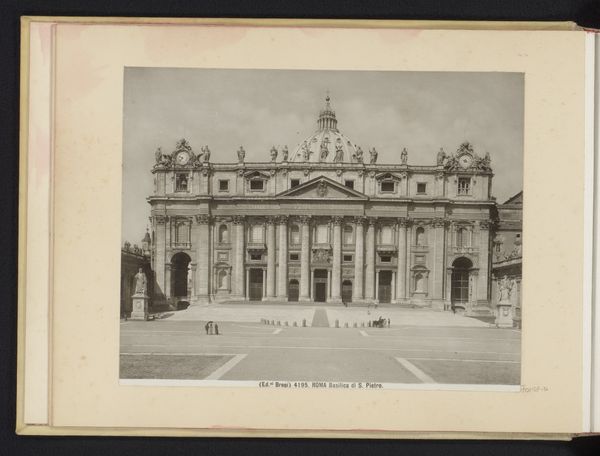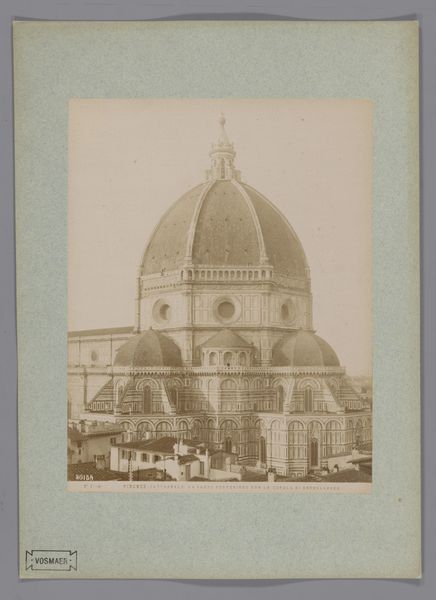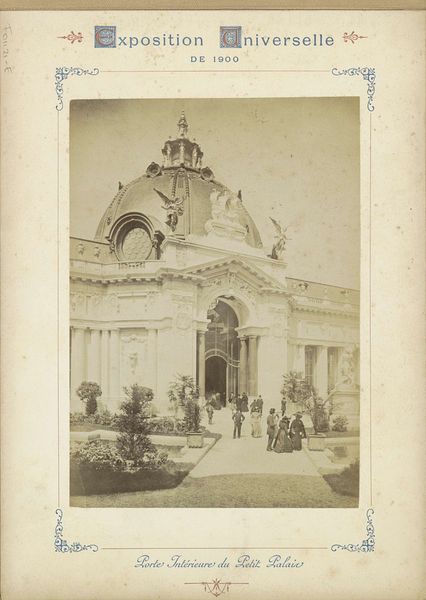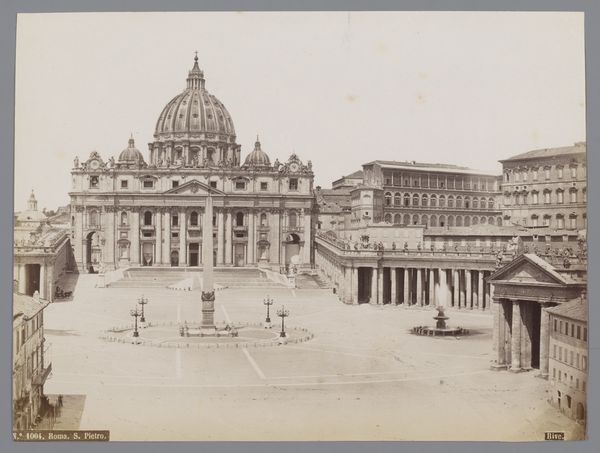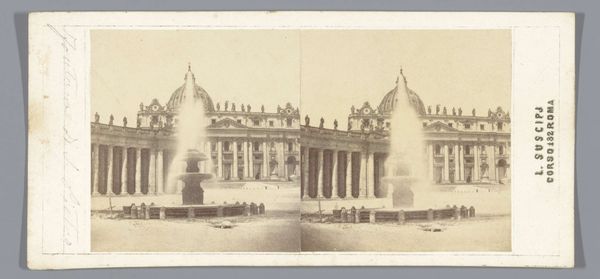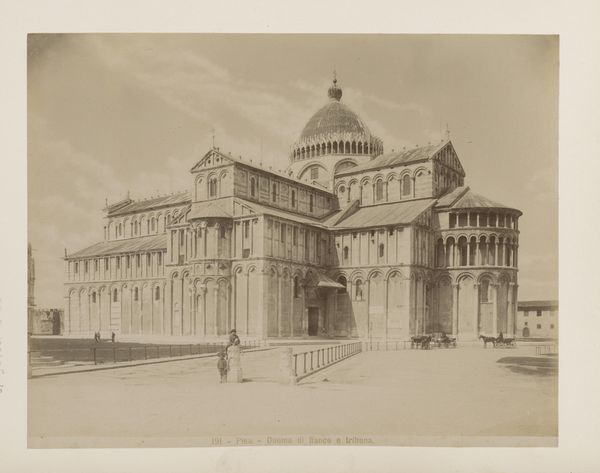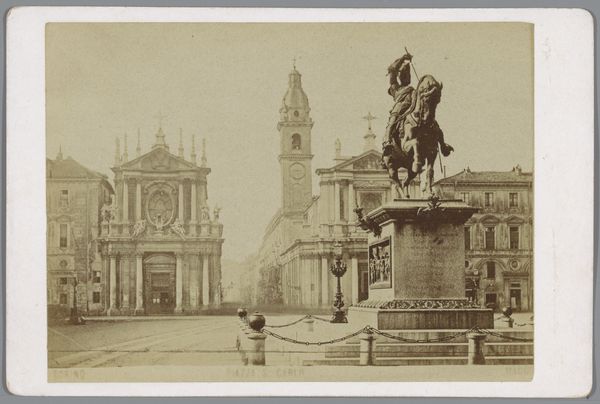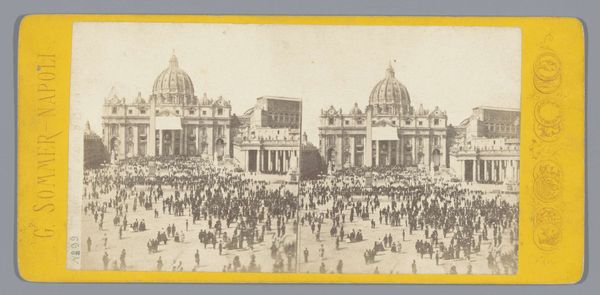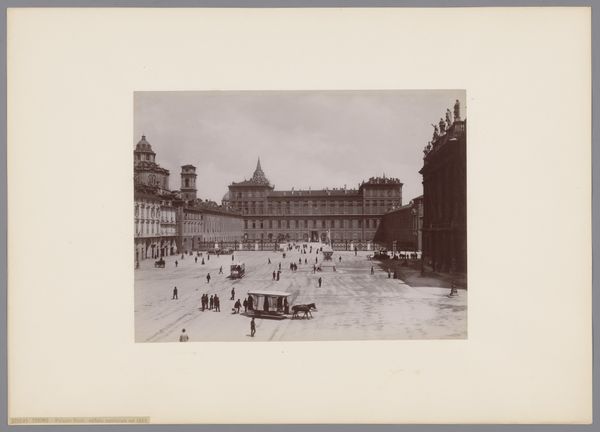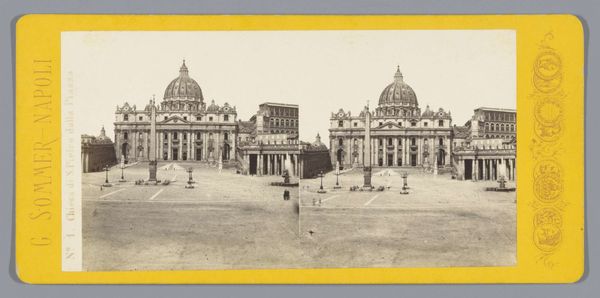
Gezicht op het Sint-Pietersplein met obelisk en zicht op de westgevel van de Sint-Pietersbasiliek te Vaticaanstad, Italië 1852 - 1900
0:00
0:00
fratellialinari
Rijksmuseum
Dimensions: height 106 mm, width 143 mm, height 168 mm, width 224 mm
Copyright: Rijks Museum: Open Domain
This albumen print of St. Peter's Square was created by the Alinari brothers, who established a photography firm in Florence in the mid-19th century. As a process, photography in this period relied on a complex interaction of chemistry and optics. In this case, the use of albumen, derived from egg whites, gives the print its characteristic sepia tone and smooth surface. This was meticulously applied to the paper support to create a receptive surface for the photographic image. The Alinari brothers' technical skill transformed the reproducibility of photography into a business model. Consider the labor involved. From the sourcing of materials like albumen and photographic chemicals, to the skilled darkroom work and the final print, it was a whole new type of industry. The photograph is not just a representation of a place, but a product of a specific moment in the history of image-making, when art and commerce were becoming increasingly intertwined. This challenges traditional notions of the artist as a solitary creator.
Comments
No comments
Be the first to comment and join the conversation on the ultimate creative platform.
